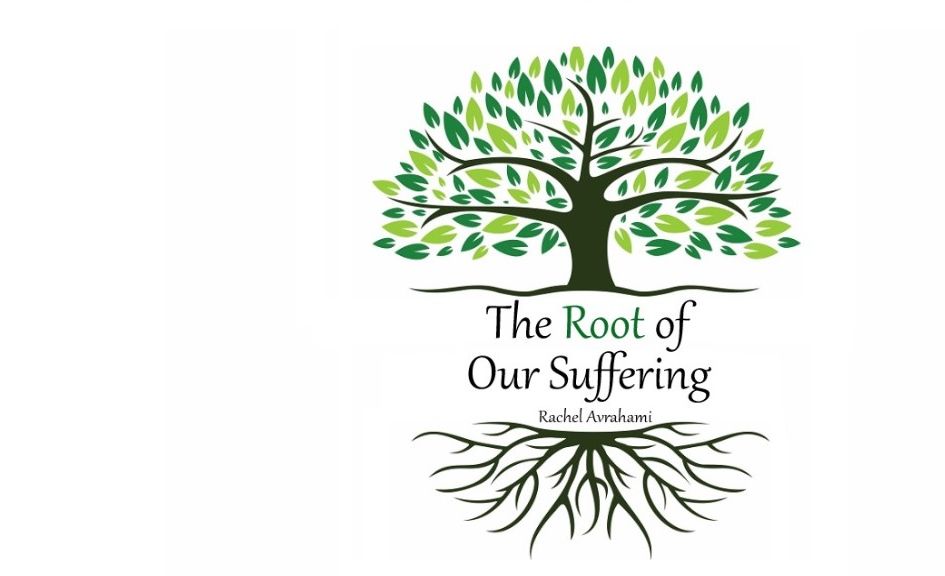
Don’t Add Sadness To Bitterness
The important thing is to respond with bitterness – not sadness. The bitterness is a mixture of remorse and dissatisfaction with one’s present condition.

Bitterness – Not Depression
During the period of the “Three Weeks” – the days between the Seventeenth of Tammuz and the Ninth of Av – the Halacha obligates us to observe a degree of mourning for the destruction of the Holy Temple. A person who is sensitive to the meaning of these halachot will feel that he is being admonished. The very obligation to remember the destruction of the Temple is a kind of indirect rebuke, since our Sages taught: “In every generation that does not merit to see the Temple rebuilt, it is as if the people of that time destroyed it themselves.” The fasts and afflictions we observe during this period also contain an element of reproach. And yet, if we respond properly, these difficult days can bring us great benefit – which is, in fact, their true purpose.
The important thing is to respond with bitterness – not sadness or depression. The bitterness a person should feel when he is being rebuked is admittedly a painful emotion. It can be a mixture of remorse for past mistakes and a deep dissatisfaction with one’s present condition. A person who feels such bitterness may be truly brokenhearted. Nevertheless – and this is the key point – his heart is still full of vitality and hope for the future. His faith in God’s goodness and His love for him is undiminished, even though he is forced to acknowledge his own failure. Hence he knows he can still plead with God like a dearly-beloved child: he can ask even for what he doesn’t deserve because his father’s love for him is so great. This kind of bitterness leaves a person with faith and hope and energy, and so it will help him return to God, which is the very purpose for which the rebuke was given.
On the other hand, sadness – and all the more so depression – robs a person of vitality and hope. It makes the heart heavy and unresponsive, and it leaves one unable to fight against the evil inclination (See Tanya ch.26 and 31). It is always part of a downward movement, and if it goes unchecked it can lead to a feeling of despair and a belief that all efforts are futile. Sadness, in other words, negates the very purpose for which the rebuke was given.
With this in mind we can understand why it is vitally important during the Three Weeks – or whenever we are being admonished – to make sure that our bitterness does not turn into sadness or depression. If it does, it will only nurture the forces of unholiness, and we will lose the benefits we would have gained had we responded with hope and energy.
Don’t Add Sadness to Bitterness
It is written: “In all sadness, there is some advantage” (Mishlei 14:23), which might be understood to mean that sadness is a good thing. That would be a mistake, however, for it has been explained (Talmud Yerushalmi, Yoma 1:1) that the real subject of this verse is the animated, hopeful emotion we have been calling “bitterness,” and not the heavy, lifeless one that can lead to depression. Such bitterness has an “advantage.” When it is used occasionally as a spiritual medicine and followed by sincere repentance, it can have highly beneficial results. It can lead a person to joy, free him from many problems, and bring him spiritual and material blessings.
If, on the other hand, we allow the evil inclination to add sadness to our bitterness, we will lose these benefits. In addition, the sadness will obstruct the spiritual vitality that normally flows to our souls. It is written, “The food of the serpent is dust” (Yeshaya 65:25); “dust” alludes to sadness and depression, which is the food of the primordial serpent, that represents the forces of evil (See Likutey Moharan I:189).
Sadness is one of the greatest obstacles in serving God, as we all too often see with our own eyes. It frequently attacks a person just as he is beginning to acquire a real fear of God and a genuine desire for holiness. For example, when a person longs for God and feels how far away he is, he may cry out in pain from the depths of his heart. This is very precious to God, and it can elicit a flow of Divine beneficence. On the verse: “And a mist went up from the land and watered all the face of the earth” (Bereishit 2:6), the Midrash explains that the word “mist” refers to the sighs of a person which rise to heaven and bring down blessing to the world (Bereishit Rabbah, 13:14).
Nevertheless, if his sighs are tainted with depression and a feeling of hopelessness, they will only strengthen the side of evil, and impede his spiritual growth.
Small Hints from Heaven
The Zohar says, “Israel was exiled only after they denied God and the kingship of the House of Dovid (David)” (Tanya, ch. 31). The Baal Shem Tov explained that the phrase, “the kingship of the house of Dovid” refers to God’s all-encompassing providence (Zohar 2:175). If a person believes that all the events of his life are an expression of Divine providence, he will regard any suffering that he experiences, no matter how slight, as a sign from heaven that he should improve himself. Divine Providence is referred to as “the kingship of the House of Dovid” because Dovid Hamelech (King David) epitomized this awareness of God’s kingship and involvement in every detail of our lives. Whenever something bad happened to Dovid, he would immediately examine his life to see what needed correction. In the midst of his struggles to perfect himself, he composed the psalms and prayers in which he pleads with God for His help, and thanks Him for His deliverance.
In earlier generations, all Jews had a strong belief in Divine providence and were able to understand the hints God sent them from heaven. Whenever they experienced suffering, they knew which fault they were supposed to correct.
By the time of the Temple’s destruction, however, this sensitivity had been lost. “Israel was exiled only after they denied God and the kingship of the House of Dovid.” They were exiled after they denied that God was continually involved in their lives and that there was meaning to everything that befell them. At first, God sent them subtle hints to improve. But they ignored those hints, and refused to change their ways. Later God then sent them clearer messages, which they also ignored. Finally, it reached the point at which they were physically driven from the land and forced to endure the bitter sufferings of a long exile.
Today, we no longer have prophets, and no one is absolutely sure about the meaning of the messages God sends us. At the very least, however, we should realize that God does want something from us. He is addressing us, even if we don’t understand the details of the message. Hence if something bad happens, God forbid, we should never attribute it to mere chance. Although we may not know God’s exact intention, we can be sure that He wants us to improve. The best advice is to try to improve our behavior in every way we can – to pray with more sincerity, to give more charity, to learn Torah more often, etc. We should pray, as Dovid did: “God, teach me Your way (so that) I will walk in Your truth” (Tehillim 86:11). We should plead with God to teach us exactly what He wants from us, and to show us how to repair our lives.
But even if we never understand the details of the message, God will see that we are responding to His hints, and that we are sincerely trying to change. As a result, He will sweeten any harsh judgments against us and take away the difficulties we were facing.
Tisha B’Av – A Holiday of Hope
A Jew can feel a tremendous joy simply at the fact that he is Jewish. When he remembers that he is a descendant of the patriarchs and a member of God’s chosen nation, he ought to feel a joy that breaks all limitations. If an individual were to truly experience this joy, he could fast on Tisha B’Av and feel all the pain and bitterness of the day, and yet, deep within his heart, experience a joy that is greater than what most of us experience on Purim. This is because Tisha B’Av is not a day of depression and hopelessness, but of bitterness and broken-heartedness at the great treasure we are lacking. True, the Holy Temple is missing, and we have been wandering in exile for millennia, but we must never stop yearning for God’s deliverance. Eventually He will take us out of the darkness and cause His face to shine upon us.
Tisha B’Av is really a day of hope. That is why the prophet Yirmiyahu calls it a holiday (mo’ed) (Eicha 1:15), and we do not say tachanun on Tisha B’Av, just as on a day of rejoicing. (Shulchan Aruch, Orach Chaim 559:4) The tears we shed on Tisha B’Av are not for something we have lost forever. Indeed, it wouldn’t make sense to continue crying for something that is irrevocably lost – it is always better to look to the future and to start rebuilding, not to wallow in tears for the past. On the contrary, on Tisha B’Av we express our hope for the future; our yearning for God and our expectation that soon He will rebuild His house. That is why Tisha B’Av is called a holiday. Indeed the very realization that there is hope and that God will soon fulfill His promise of redemption is ample reason to rejoice.
To be continued…
(Excerpt from The Scent of Gan Eden, by Rabbi Yaakov Meir Shechter, Keren Ohr Publications. Used with author’s permission.)











Tell us what you think!
Thank you for your comment!
It will be published after approval by the Editor.